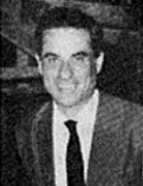

Born into a wealthy family, he was the son of Manuel Telles Barradas de Carvalho, a landowner from Alentejo and a monarchist, a novelist with a small body of work but a worthy one; his uncle, General José Marques Godinho (1881-1947), a hero of World War I, was involved in an attempted coup against Salazar in 1947. Always supported by his parents, despite being a ‘very uncomfortable child’ ( As fontes … [The sources] , 1968, p. 9), he graduated in Historical Philosophical Sciences from the School of Arts and Humanities of the University of Lisbon (1946), having been a colleague of Joel Serrão, Rui Grácio , and Jorge de Macedo, among others.
As a young student, he joined the Communist Party and took part in opposition movements, which prevented him from being hired for a position in Portuguese public education during the dictatorship. Because, of course, JBC did not offer ‘guarantees of co-operating in the realisation of the higher aims of the State’, according to PIDE information (Tiago Brandão, ‘Migração científica … ’ [Scientific Migration] , 2011).
When the Ministry of Education decided to open a School of Arts and Humanities at the University of Porto in 1961, JBC (as well as Joel Serrão and João Bénard de Costa) were prevented from applying for the post of course leader – someone made the ir application documents disappear, in case the jury chose a reprobate … Trustworthy people had to be chosen – it was no coincidence that António Cruz, a well-known Salazarist militant, who would go on to become Full Professor and director of the School, was approved ( O obscurantismo … [The darkness] , 1974, pp. 25-26 and 82). For the regime, it was not only the purging of Professors that mattered but also the obstacles to the admittance of capable people into teaching positions, especially in university settings. Trying to escape this environment, JBC had to leave the country (and after the attack on the Beja barracks on New Year ’ s Eve 1961/1962 , in which he was involved, go into exile). Exile to avoid the inevitable persecution and imprisonment. Hence , his academic career began in France, where he received a grant from the French Ministry of Foreign Affairs, then another one from the Calouste Gulbenkian Foundation and from the Association Marc Bloch, where he was a researcher at the Centre National de la Recherche Scientifique [National Centre for Scientific Research] . He took the 3 rd Cycle (1961) and State (1975) doctoral exams at the University of Paris, and his theses received the highest grades . His research training was carried out in close contact with Fernand Braudel in the 6 th Section (Social Sciences) of the École Pratique des Hautes Études, but no less so in the 4 th Section (Historical and Philological Sciences) , where the masters of scholarly methods were to be found.
This work is financed by national funds through FCT - Foundation for Science and Technology, I.P, in the scope of the projects UIDB/04311/2020 and UIDP/04311/2020.
